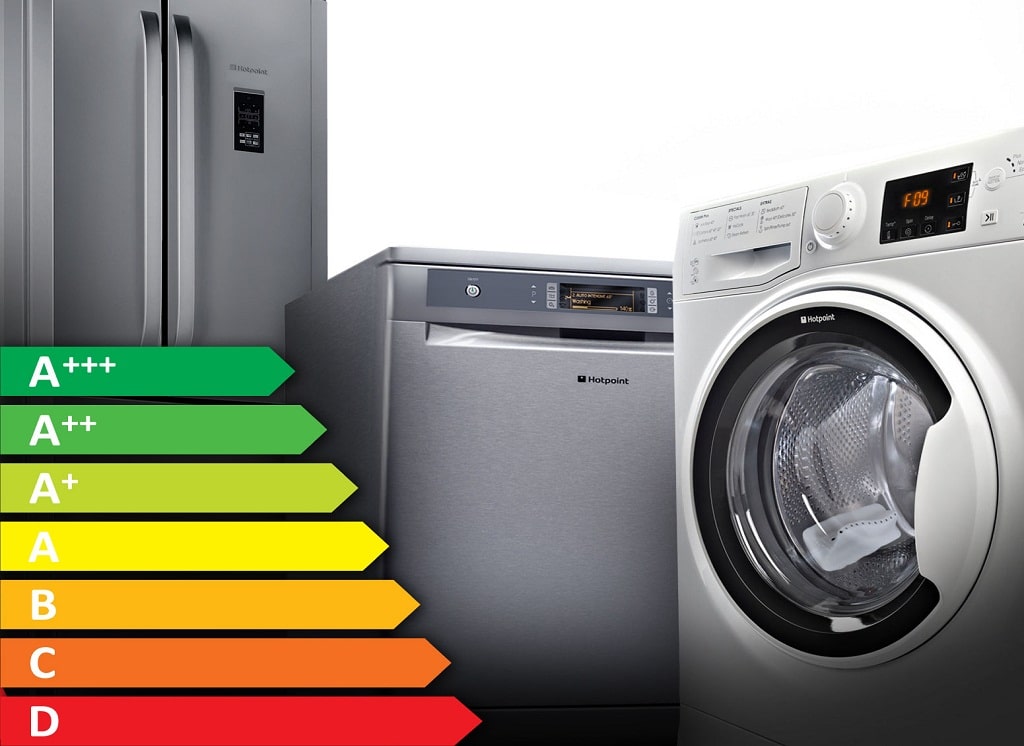Easy ways to reduce emissions at home

How To Make Your At-Home Appliances Work More Efficiently
Changing up your entire household and upgrading to the newest, energy efficient appliances isn’t actually the answer to being carbon conscious in the way you live. This is because the energy and materials used to create new goods vastly outweighs the energy savings they can provide. Not to mention, replacing all your white goods is not cost effective or realistic for most.
To run your home more efficiently, the best thing to do is be more conscious when making decisions and how you use your appliances. Small, easy changes can make your appliances more efficient themselves, i.e. not having to demand so much output. You can also make money-saving changes, which is a huge motivator for creating a more eco-conscious household. Read on for our top tips.
Use the delay or timer feature on your machines
It’s not a myth! Energy prices are cheaper during the night because these are off peak times. There is a lower demand on the power grid, you are rewarded with lower prices during the middle of the night.
The off-peak time runs for about 7 hours, typically from 11pm to 8am. The good news is that you don’t have to be awake during this time, you just have to use the delay feature on your existing appliances. So load up the dishwasher, start it at 1am and then unload in the morning for cheaper energy bills and more efficient appliances.
Defrost your freezer
If your freezer overfrosts, the ice is actually taking up room in there, reducing the amount of space you have to use. It can make the drawers harder to pull out and it can spoil your food, potentially costing money. However, the key reason you’ll need to defrost your freezer is because when it’s frosted over, the appliance is having to work twice as hard to maintain its low temperature. This is because the ice acts as an insulator but also because the built in thermometer can be disrupted.
If you find you’re having to defrost your freezer on a regular basis, you may need to replace the seal. So many new freezers come with an auto defrost or frost-free feature, saving you the effort of having to do it yourself.
Make sure there are space around your appliances
Built-in and integrated appliances are often fitted in a little too tight, which means that the fans can be blocked or might not have enough ventilation. Similar to your freezer, the appliance can then overwork, consuming more energy. Ensure when installing your appliances that there is the advised amount of room surrounding them. If you do not have integrated appliances, you might just want to check to ensure that they’re not pushed too tightly up against walls or surfaces and ensure they’re getting the required ventilation.
Put your wash on at 30
We’re here to tell you, it’s not just advertising! Since 2013, all washing machines have had to have a cold wash or 20 degree setting, because it’s proven to make the appliance more efficient and less demanding on energy as the water doesn’t need to be heated as much. However, the issue is that most believe 20 degrees isn’t hot enough to get out stains. A little forethought before doing your laundry can make your current appliances efficient because you can avoid rewashing.
If clothes are stained with food for example, soak them first and then put on a 20 degree wash. You’ll use less water and then there’s no need to wash an entire load up to 40 or 60. If you wash at these temperatures, you’re also more likely to seal a stain resulting in rewashing and wasted energy.
Choose the right appliances for your lifestyle
As we mentioned in the intro, It’s not recommended that you throw out appliances that are working perfectly well, just in favour of buying something that may be more energy-efficient, because actually, it takes more energy and is more demanding of resources to unnecessary replace your household equipment.
However, when an appliance comes to the end of it’s natural life cycle, think about how you used it before you replace it. There are options for lower-weight washing machines that require less water and less electricity. Washer-dryers typically also require more energy and are less efficient appliances. If you have a gas hob, a stovetop kettle may also be beneficial. Half size and draw dishwashers also require less space in your kitchen and demand less water and power.
Another thought is that if you’re only a household of 1 or 2, you probably don’t need a tower fridge or freezer. A half empty fridge or freezer actually consumes more energy, you could try an under-counter model if you’re replacing your existing one.
The most important factor when replacing your appliances is to consider how you use them. Getting a smaller appliance and then using it more frequently is actually likely to consume more energy; the best advice is to be thoughtful with your purchases.
Think about a new boiler or alternative energy
Approximately half of your energy bills are spent on heating water (whether you use it or not). To make the biggest savings and impactful changes, consider updating your boiler or where your energy comes from. In 2025, the UK government will be introducing a ban on old gas or oil boilers, because they are less efficient. Although you can still have a gas boiler, these are new models. Although it’s an upfront cost, if you live in a detached house, you could save up to £365 a year on your heating bills and increase efficiency up to 50%.